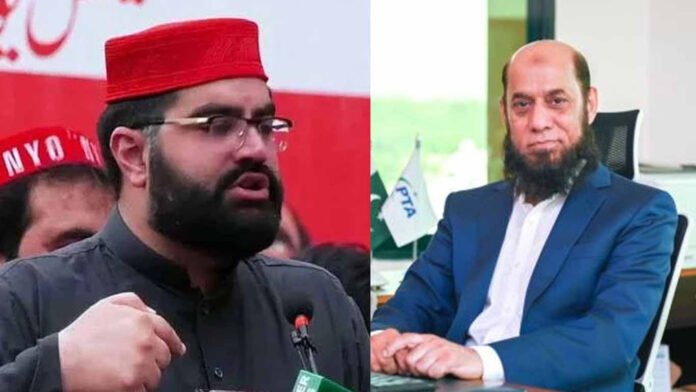A heated exchange unfolded between Senator Aimal Wali Khan and Pakistan Telecommunication Authority (PTA) Chairman Hafeez-ur-Rehman during a meeting of the Standing Committee. The confrontation began when the PTA Chairman made a provocative remark, accusing Senator Khan of smoking hashish and jokingly asking for a “hashish cigarette.” Senator Khan responded with outrage, questioning the Chairman’s authority to make such a comment and demanding action against him.
The Senator’s ire was palpable as he lashed out at the Chairman, saying, “How can a government employee tell me that you have come after smoking hashish?” Senator Khan emphasized that this behavior was unacceptable for a government official, asking, “Who gave you the courage to talk like this?” The PTA Chairman attempted to diffuse the situation by apologizing repeatedly, admitting to having made a mistake.
However, Senator Khan remained unappeased, suggesting that the Chairman’s behavior was unbecoming of his position. The Senator questioned the Chairman’s personal conduct, saying, “If you drink hashish and alcohol, then why do you talk like this?” The tension between the two escalated to the point where the Standing Committee Chairman, Agha Shahzeb Durrani, intervened.
Agha Shahzeb Durrani ultimately asked the PTA Chairman to leave the meeting, stating that either the Chairman would stay or Senator Khan would. The PTA Chairman was forced to exit the meeting. The Standing Committee Chairman condemned the PTA Chairman’s behavior, stating that he had insulted not only Senator Khan but also the Standing Committee.
The Committee decided to take further action, with Chairman Durrani announcing that he would raise the issue of the PTA Chairman’s misconduct with the Prime Minister. He emphasized that the Prime Minister should take action against the PTA Chairman, given the gravity of his behavior. Additionally, the Standing Committee directed the Secretary IT to take notice of the matter.
The incident highlights the intense disagreements that can arise in official settings and the importance of maintaining professionalism and decorum in public office. The outcome of this confrontation remains to be seen, but it has already sparked significant attention and debate



